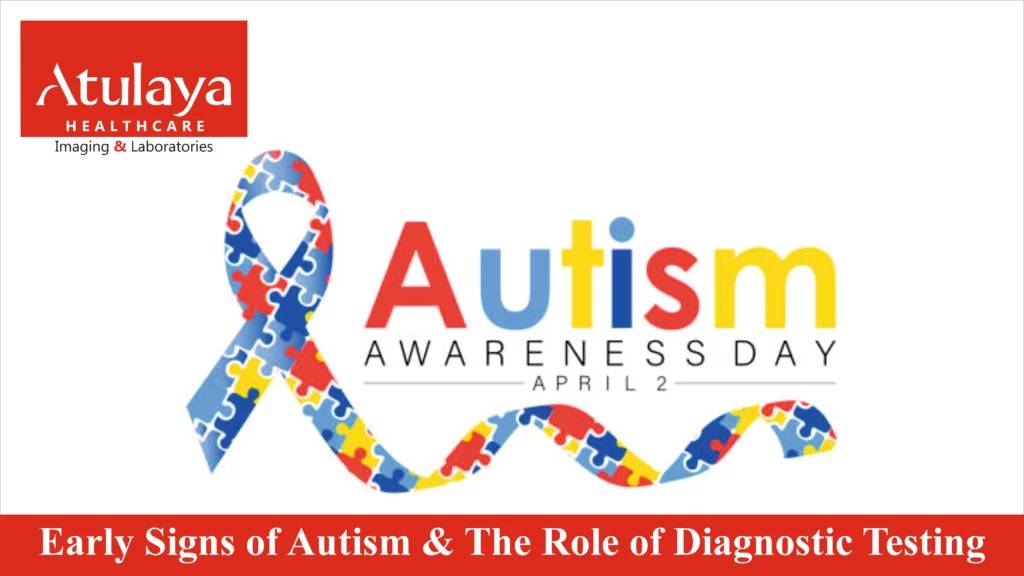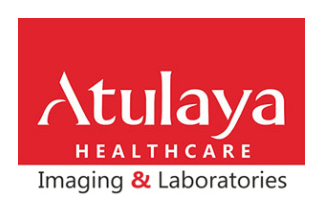
Autism, or autism spectrum disorder (ASD), is a developmental disability that affects a person’s ability to communicate and interact with others. It’s caused by differences in the brain. The abilities and needs of autistic people vary and can evolve. Early diagnosis and intervention play a crucial role in improving outcomes for children with autism.
Early Signs of Autism
Early indicators of autism can manifest as early as six months of age, with noticeable signs becoming more evident by the time a child is two years old. Some common early signs include:
- Limited or no eye contact
- Lack of response to their name by 12 months
- Delayed speech or lack of babbling by 12 months
- Limited gestures such as pointing or waving
- Repetitive behaviors like hand-flapping or rocking
- Strong resistance to changes in routine
- Hyper- or hypo-sensitivity to sensory stimuli
- Difficulty engaging in imaginative play
- During pregnancy also, signs may be seen that further depend on maternal health and environmental and genetic factors.
Early screening and diagnostic tests can help to confirm the presence of autism at early stages, and steps can be taken to further restrict the effects on the patient.
The Role of Diagnostic Testing in Autism
While behavioral assessments are the primary method for diagnosing autism, several diagnostic tests can provide valuable insights. These tests include maternal markers, non-invasive prenatal testing (NIPT), MRI, EEG, ultrasounds, and other specialized evaluations.
1. Maternal Markers and NIPT
Studies indicate that some maternal biomarkers during pregnancy can be predictive of a higher risk of autism. Highly advanced genetic tests, such as Non-Invasive Prenatal Testing (NIPT), are able to identify chromosomal anomalies related to neurodevelopmental disorders. While NIPT is not a direct diagnostic test for autism, it does identify genetic risk factors that are potentially responsible for ASD.
2. Genetic Testing in Autism for Newborns and Fetuses
Prenatal Genetic Testing for Autism includes NIPT and chromosomal microarray analysis (CMA)
Indicated in high-risk pregnancies with a family history of autism.
Whole-Exome Sequencing (WES):
Identifies single-gene mutations associated with autism, including those in SHANK3, MECP2, SCN2A, and CHD8 genes. Applied in situations with high genetic susceptibility to ASD.
Karyotyping & Fluorescence In Situ Hybridization (FISH):
Applied to identify large chromosomal abnormalities that are associated with developmental disorders.
Newborn Genetic Testing for Autism
Newborn Screening Panels: Tests may include metabolic and genetic disorders that can lead to autism-like symptoms.
Whole Genome Sequencing (WGS) & WES:
Improved techniques to examine all the genetic differences in a newborn with suspected ASD. Assists in early detection and tailored intervention planning.
3. Autism Detection through Ultrasound
Recent research indicates that prenatal ultrasounds can assist in identifying early signs of autism. Researchers have identified differences in fetal brain development and head circumference measurements in pregnancies at high risk. Abnormalities in brain structure and excess fluid in brain cavities (ventriculomegaly) identified through second-trimester ultrasounds have been linked to a higher risk of autism.
4. MRI (Magnetic Resonance Imaging)
MRI imaging gives precise images of the structure of the brain and can detect abnormalities in the development of the brain related to autism. Research has indicated that children with ASD tend to show variations in brain connectivity and size.
5. EEG (Electroencephalography)
EEG is applied to determine brain function and identify abnormal neural patterns in children with autism.
6. Behavioral and Developmental Evaluations
These tests enable clinicians to assess social interaction, communication, and behavior patterns.
Early screening is also available at Atulaya Healthcare, which covers prenatal screening, genetic testing, ultrasounds, and neuroimaging services.
Early screening enables them to take proactive measures in obtaining the finest intervention for their health. Through the use of cutting-edge diagnostic technology, Atulaya Healthcare provides proper evaluations and tailored assistance for families dealing with an autism diagnosis.
Conclusion
Early diagnosis of autism can make a real difference in developmental outcomes, enabling timely interventions to be implemented under an individual’s specific needs. Thanks to advancements in diagnostic tests, families can learn about neurodevelopmental health. Early autism screening services help for an active response to autism diagnosis and treatment.
